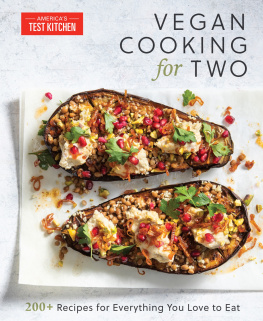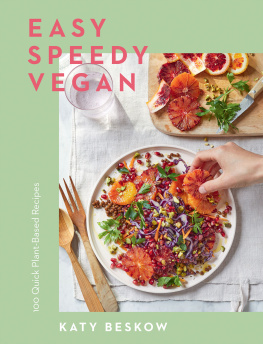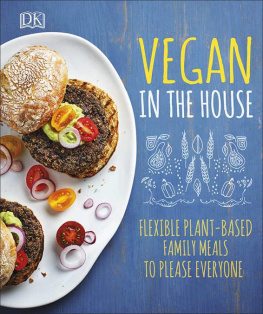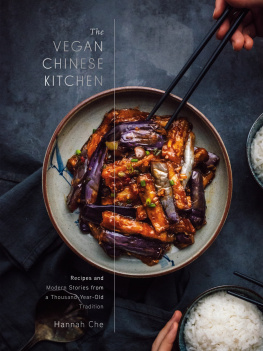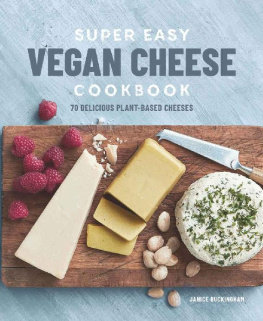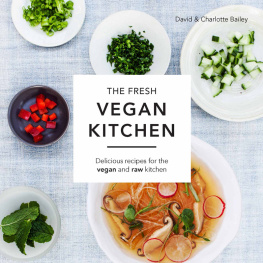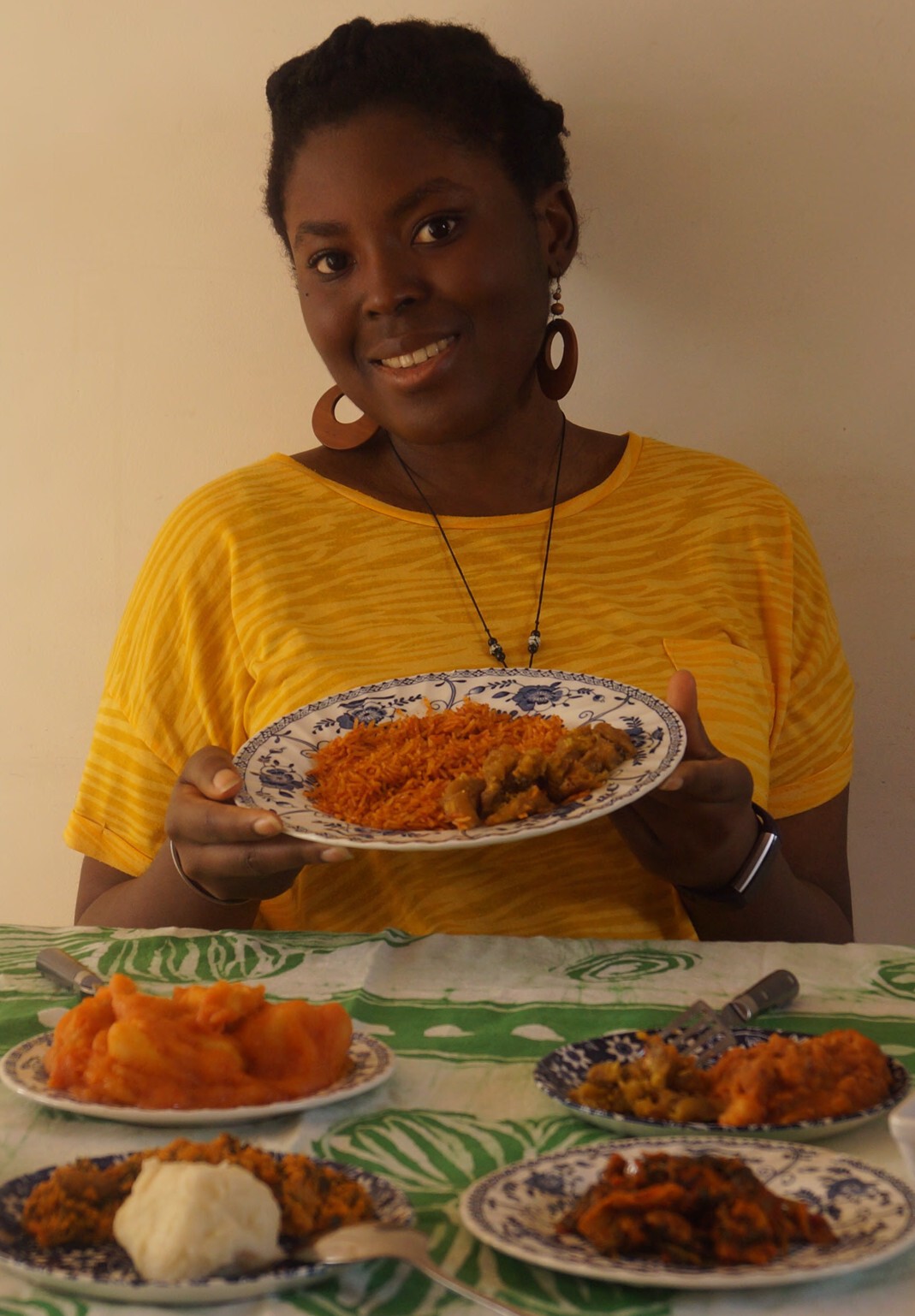VEGAN NIGERIAN KITCHEN
100 CLASSIC RECIPES WITH A PLANT-BASED TWIST
TOMI MAKANJUOLA
Vegan Nigerian Kitchen by Tomi Makanjuola First published in Great Britain in 2021
Text and food photographs Tomi Makanjuola
Tomi Makanjuola is hereby identified as the sole author of this work in accordance with the Copyright, Designs and Patents Act of 1988.
All rights reserved. No part of this book may be reproduced in any form or by any electronic or mechanical means, including information storage and retrieval systems, without permission in writing from the author. Any person who does any unauthorised act in relation to this publication may be liable to criminal prosecution and claims for damages.
Ebook and paperback copies available via: www.vegannigerian.com
Amazon
In loving memory,
Deborah Olawumi Abebi Makanjuola Winifred Oluremi Abagbe Alabi
CONTENTS
INTRODUCTION
Must-Have Equipment
Traditional Cooking Tools
CHAPTER 1: BASIC RECIPES
Homemade Vegetable Stock Cubes
CHAPTER 2: VEGAN EGG DISHES
Vegetable 'Omelette with Boiled Plantain
CHAPTER 3: PORRIDGES
Acha Pudding (Sweet Fonio Porridge)
Ewa (Beans) and Adalu (Beans and Corn)
Gwate Acha (Savoury Fonio Porridge)
Ikokore (Water Yam Porridge)
Koko (Spicy Millet Porridge)
Kunun Gyada (Rice and Groundnut Porridge) 65
Ogi/Pap/Akamu (Fermented Corn Porridge)
CHAPTER 4: RICE DISHES
CHAPER 5: SWALLOWS (FUFU)
Eba
Water Fufu (Cassava Fufu)
CHAPTER 6: SOUPS AND STEWS
Ata Dindin (Pepper Stew)
Banga Soup
Bitter Leaf Soup
Egusi Soup
Ewedu Soup
Gbegiri Soup
Miyan Kuka
Miyan Ridi
Miyan Zogale
CHAPTER 7: SAVOURY SNACKS, LIGHT MEALS AND SIDES
Ekuru
CHAPTER 8: SWEET SNACKS AND PASTRIES
Pu Pu
CHAPTER 9: DRINKS AND COCKTAILS
GUIDE TO GOING VEGAN / SAMPLE MEAL PLAN ESSAY ON VEGANISM BY DR YOMI MAKANJUOLA ACKNOWLEDGEMENTS
ABOUT THE AUTHOR
INTRODUCTION
Whether youre holding this cookbook in your hands or scrolling through the ebook version, thank you for being here. A lot of love has been poured into these pages and I hope you feel all of it as you embark on this culinary journey.
There is a reason why I procrastinated for so long before putting a cookbook like this together. A small dose of imposter syndrome mixed with a deep-seated desire to do it perfectly - a cocktail for prolonged inaction. Then one day, I took the first step and penned a very rough outline. Day by day, the pieces started to fall into place and uncertainty transformed into excitement. What seemed like an impossibly huge and overwhelming task turned into a project that has filled me with an immense amount of joy over the last few months. Now that it is done, I already miss the process, but I am so proud and delighted to put it out into the world.
It has been a pleasure to put these recipes together, drawing on the traditional Yoruba meals I grew up eating and loving, but also pushing myself to research dishes from other regions of Nigeria that I had never tried before! When it comes to Nigerian food, there will always be more to say and more to explore. In truth, there are not enough pages to capture the breadth and depth of what the country has to oer. But my hope is that this cookbook will be a worthy starting point for you to try some of the best of what we have. I hope it gives you the grounding and confidence to delve fully into the beautiful world of Nigerian cuisine...vegan style!
My promise to you is that you will encounter new and exciting recipes. Even if you are a fellow Nigerian, there will no doubt be dishes from other ethnic groups that you have not encountered yet. You will get to learn about our traditional methods of cooking, and yet many of the recipes will be accessible, so that you could be living in London, Berlin, Cape Town or New York City and you will still be able to create many of the dishes at home. You will learn involved and technical recipes like how to make cassava fufu from scratch or how to make fermented porridge, but you will also have access to quick meals that you can add to your weekly meal rotation. Some recipes will become instant favourites, some might take a while to grow on your tastebuds.
Ultimately, I want you to have fun and be all in. If you live outside of Nigeria, I want you to support local and online African retailers as you seek out some of the specialist ingredients. I also want you to see that eating the vegan way can be joyful, abundant, nourishing and achievable.
I want you to open up your heart and mind (and mouth?) as you step into my Vegan Nigerian Kitchen . Its delicious in here.
Tomi x
INTRODUCTION
WELCOME TO NIGERIA
Nigeria is a sub-Saharan country in West Africa that shares a border with Niger, Cameroon, Chad and the Republic of Benin.
Before Nigeria was the country as we know it today, the region was made up of pre- colonial settlements, kingdoms and empires such as the Benin Empire, Oyo Empire, Kanem-Bornu Empire, and more. The modern iteration of the country was formed during British colonial rule in the 19th century, which saw the merging of the northern and southern protectorates. Nigeria went on to gain independence on 1st October 1960.
With a population of about 206 million people (the highest in Africa), the country is ethnically diverse with over ethnic groups and over languages spoken, although English is the nations ocial language, spoken in most schools and professional settings. You may already be aware of the major ethnic groups - Yoruba, Igbo, Hausa and Fulani - but may be less familiar with groups such as Ibibio, Efik, Tiv, Ogoni, Urhobo, Igala, Itsekiri and many more. Considering this level of diversity, you can understand why I stated that there are not enough pages to capture the scope of local delicacies from every region of the country.
Nigeria has a tropical climate but there are climatic variations in dierent parts of the country which determine the availability of certain crops. The southern region is humid and wet, marked by rainforests and greenery. Here, crops such as cacao, oil palm, leafy green vegetables, fruits and tubers thrive. The northern region is semi-arid with an abundance of grassland and nutrient-rich trees such as moringa and baobab. Here, crops such as maize, millet, fonio, sorghum and groundnut grow in abundance. We will delve more into the variety of ingredients in the next few pages.
When it comes to our cuisine, there are certainly many similarities with other West African countries such as Ghana, Senegal and Cameroon. Rich vegetable soups and stews are common, often served with starchy sides such as yam, plantain or swallows (bolus meals made from a variety of tubers and grains). Rice is a firm staple, eaten in various styles that you will discover in this cookbook. The classic combination of tomatoes, peppers, onions and chillis make up the base of many of our savoury meals. Plenty of it is naturally plant-based or can be adapted with some creativity. The food flavour profile in the south tends to be smoky, pungent, spicy and sometimes bitter. Food in the north ranges from mildly flavoured to spicy. Across the country, fermentation is one of the oldest forms of food preservation that is used in the preparation of many meals and ingredients. Drying, particularly in the sun, is another method widely used to preserve and impart more flavour to food.



